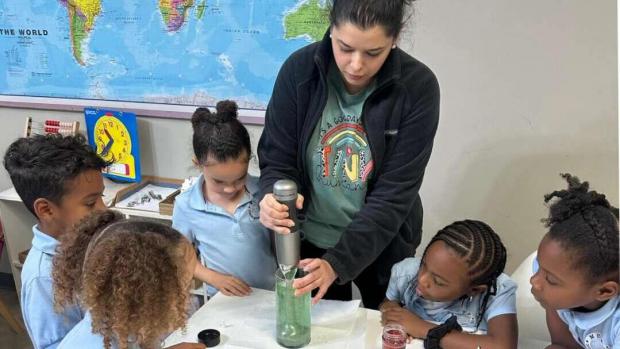
Breaking News
 Iran (So Far Away) - Official Music Video
Iran (So Far Away) - Official Music Video
 COMEX Silver: 21 Days Until 429 Million Ounces of Demand Meets 103 Million Supply. (March Crisis)
COMEX Silver: 21 Days Until 429 Million Ounces of Demand Meets 103 Million Supply. (March Crisis)
 Marjorie Taylor Greene: MAGA Was "All a Lie," "Isn't Really About America or the
Marjorie Taylor Greene: MAGA Was "All a Lie," "Isn't Really About America or the
 Why America's Two-Party System Will Never Threaten the True Political Elites
Why America's Two-Party System Will Never Threaten the True Political Elites
Top Tech News
 How underwater 3D printing could soon transform maritime construction
How underwater 3D printing could soon transform maritime construction
 Smart soldering iron packs a camera to show you what you're doing
Smart soldering iron packs a camera to show you what you're doing
 Look, no hands: Flying umbrella follows user through the rain
Look, no hands: Flying umbrella follows user through the rain
 Critical Linux Warning: 800,000 Devices Are EXPOSED
Critical Linux Warning: 800,000 Devices Are EXPOSED
 'Brave New World': IVF Company's Eugenics Tool Lets Couples Pick 'Best' Baby, Di
'Brave New World': IVF Company's Eugenics Tool Lets Couples Pick 'Best' Baby, Di
 The smartphone just fired a warning shot at the camera industry.
The smartphone just fired a warning shot at the camera industry.
 A revolutionary breakthrough in dental science is changing how we fight tooth decay
A revolutionary breakthrough in dental science is changing how we fight tooth decay
 Docan Energy "Panda": 32kWh for $2,530!
Docan Energy "Panda": 32kWh for $2,530!
 Rugged phone with multi-day battery life doubles as a 1080p projector
Rugged phone with multi-day battery life doubles as a 1080p projector
 4 Sisters Invent Electric Tractor with Mom and Dad and it's Selling in 5 Countries
4 Sisters Invent Electric Tractor with Mom and Dad and it's Selling in 5 Countries
How New Microschool Accreditation Pathways Are Opening Doors For Founders and Families

"My mind was blown," said Fagerburg. "I had no idea education could be this good."
She applied to open her own Acton Academy, and was accepted into the fast-growing network of approximately 300 independently operated schools, emphasizing learner-driven education. Fagerburg launched Acton Academy Johnson City last fall with 13 students, including four of her own children. Today, she has 26 K-6 students enrolled in her secular microschool, with plans to add a middle school and high school program in the coming years. "Parents want this. They love it," said Fagerburg, adding that some families drive up to 45 minutes each way for their children to attend her program.
She says she sees enormous demand for the Acton Academy model, and hopes to open more locations in Tennessee, but access is a key concern. "I grew up poor," said Fagerburg. "I never would have been able to attend a school like this."
With the current expansion of school choice programs, such as Tennessee's new universal education savings accounts (ESA), many more families are able to access innovative schools and learning models. "It's a complete game changer," said Fagerburg, explaining how the ESA program enables Tennessee families who previously had limited education choices to now use a portion of state-allocated education funding to select the school or learning space that is best for their child.
But there's a catch. In order to participate in Tennessee's ESA program, Fagerburg's school must be accredited, and its current accreditation by the International Association of Learner Driven Schools isn't recognized by the state.
That is why Fagerburg jumped at the opportunity to participate in a fledgling program offered through the Middle States Association (MSA), one of the four major K-12 accreditation entities, with 3,200 member schools worldwide. In partnership with Stand Together Trust, MSA's Next Generation Accreditation pilot program seeks to offer a faster, more affordable, and more flexible route toward accreditation for today's emerging schools.
"We created this flexible protocol around how a school actually works," said Christian Talbot, President and CEO of MSA. "That gives mostly microschools, but really any innovative school, the opportunity to tell their story with the production of evidence that makes the most sense to them."



